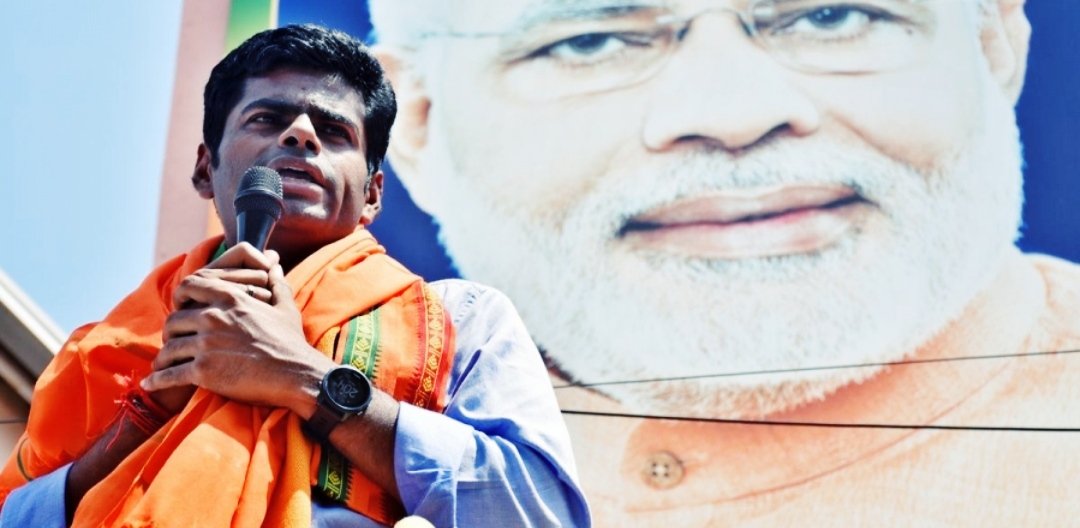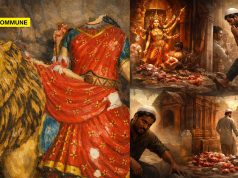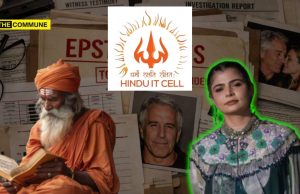
Ever since former IPS officer K. Annamalai joined the BJP, who subsequently became the Vice President of the party’s Tamil Nadu unit, the opposition parties in the state especially the DMK has become restless with its IT cell cyber-coolies running mischievous propaganda to discredit and cow down the man who is looked up to as an inspiration by youngsters and is still held dear by people in Karnataka.
Addressing a press meet in Coimbatore, Mr. Annamalai had said that the developmental indicators of Tamil Nadu have always been ahead even before the rule of Dravidian parties began in 1967.
However, he has been mocked by a crowd that lacks basic human intelligence leave alone having knowledge of history.
We need not go much back in time to understand why Tamil Nadu stands where it is today. Take the time between 1921-1951-1967. Was Tamil Nadu a backward state during this period? Tamil Nadu did not move from the 20th place to the top 5 after 1967 out of the blue. It would be injustice to not mention the contributions of exceptional leaders starting from A. Subbarayalu Reddiar to C. Rajagopalachari, Omandur Ramaswamy Reddiyar, Kumaraswamy Raja and and not to forget ‘Karmaveerar‘ Kamaraj.
Kamarajar, who the then Prime Minister Jawaharlal Nehru had great respect for, put this state on the path of development much before the Dravidian parties did. He was instrumental in bringing in a good number of central government projects to Tamil Nadu and fostered infrastructure development in the state. He laid the foundations for agriculture, education, industries, electricity, etc the benefits of which Tamil Nadu is reaping today.
While the Dravidian cabals hail E.V. Ramasamy and the DMK as the harbinger of social justice, it is to be remembered that it was the then Chief Minister Kamarajar who took up the issue of reservation to BC (Backward Classes) with Nehru and made sure that the First Amendment to the Constitution was passed by the Parliament empowering state governments to create quotas for communities identified as ‘Backward Classes. Even ‘Periyar’, hailed Kamarajar through his publishing house Viduthalai by bringing out the book “Kamarajar Aatchiyin Sadhanaigal” (The achievements of Kamarajar’s regime).
It is to be noted that in the 100 years between 1920 and 2020, it was the AIADMK that has ruled for 30 years followed by the Indian National Congress which ruled for 25 years. The DMK and Justice Party ruled for 21 years and 17 years respectively.
However, the DMK is now claiming the achievements of Kamarajar (INC) and Dr. MG Ramachandran (AIADMK) to itself as if Tamil Nadu people are indebted to their party.
Many people ask why the Congress party was not able to replicate in other states what it achieved in Tamil Nadu. The reason is that Tamil Nadu lying at the southernmost part of India, was not affected by the wounds of partition.
Apart from this, leaders like Omandurar, Rajaji and Kamarajar built the foundations of Tamil Nadu in post-independent India.
With respect to the DMK, it is important to know about two of their leaders – EVK Sampath and R. Chezhiyan who indulged in intellectual discussions of the Dravidian movement and took it to the national level intelligentsia. The works of both these leader should be read by people across the spectrum especially the present day Dravidian ideologues as they themselves have registered about Tamil Nadu’s development record before 1967. They said that Tamil Nadu had the potential to grow hundreds of times more and that it was the Congress that was hindering the growth. They had justified why Dravidianism strode a different line from the Congress as mentioned below. Here is an excerpt from their works.

This is the revenue account of Madras, Andhra, Hyderabad, Mysore and Kochi provinces for the year 1954-55: Chennai – ₹45 crores, Andhra – ₹21.03 crores, Hyderabad – ₹27.96 crores, Mysore – ₹21.21 crores, Kochi – ₹17.28 crores totalling to ₹132.48 crores.
Similarly, they note that the tax received by the Central Government was said to be ₹82.58 crore per annum. Adding the two figures, the revenue collected by the Central Government from the Dravidian region is ₹215 crore per annum, they highlighted.
EVK Sampath noted in his essay that when compared to countries like Pakistan, Ceylon (Sri Lanka), Thailand and Vietnam, the southern region of India had more money in its reserves.

This essay was published in 1957 under the title “Dravida Kootatchiyin Nidhi Nilamai” (The financial status of the Dravidian federation) in Nedunchezhiyan’s magazine ‘Mandram’.
So, from the figures it is conspicuous that the Madras province fared better when compared to other regions even back then. The overall situation in southern India has remained good compared to other countries abroad in those times. This did not happen just during 1952-57 but because of the inherent wealth of this land and the hardwork of the Tamil Nadu people despite the plunder by the invaders.
Thus, Mr. Annamalai stating that the state should now aspire to reach the levels of Belgium and France is similar to what DMK’s EVK Sampath mentioned about the Congress government and Kamarajar. When he asks “When has Tamil Nadu ever been down to come up?”, he comes from that point of reference.
The tragedy of the Dravidian regime is that they did not know how to properly use the foundations laid by Kamaraj – C. Subramaniam – Venkatraman. Had it not been for the noon-meal scheme of MGR and the reforms brought about by Narasimha Rao at the national level, Tamil Nadu would have gone to abyss. Fortunately Ms. Jayalalithaa was in power when Narasimha Rao brought about the economic reforms.
As far as Tamil Nadu is concerned, all the important developments happened during the AIADMK regime. In other words it was a result of the individual charisma and personality of the leaders.
Another question that is being posed is that why has the BJP ruled states in north India not reached to the levels of Tamil Nadu. The answer is simple – these states for a long time were ruled by the Congress since independence. Nowhere has the BJP ruled as long as the Dravidian parties. Also, it has been in power at the Centre for only 11 years. In these 11 years, it has managed to fulfil the basic requirements – building toilets, houses, ensuring universal access to healthcare through Aayushman Bharat and Janaushadhi store, ensuring universal financial inclusion through Jan Dhan Yojana, empowering women by providing LPG cylinders through Ujjwala Yojana, ensuring employment and credit through Mudra Yojana, etc. To top it all, there has not been a single accusation of a Minister involved in a scam or corruption.
The party was able to come back to power in 2019 with a resounding majority because of this track record of good governance and corruption free administration. In the case of Tamil Nadu, the party did not have a strong foundation and organization structure that the DMK and AIADMK has.
That being the case, are those beating their chest about 50 years Dravidian rule ready to compare with 25 years of BJP rule in Gujarat?
The Dravidian cabals say “Go develop the states where you are ruling before coming to Tamil Nadu”. Is this even a democratic argument to make? It is akin to asking Karunanidhi to first go and develop Tiruvarur before developing Tamil Nadu.
It is not the case that nothing has happened in these 50 years of Dravidian rule. All these developments would not have happened without the support of Central government. But given Tamil Nadu’s potential, it could have grown at a much faster pace. That is the point.
This article was originally written in Tamil by Sundar Raja Cholan. It has been translated to English by the author. Read the original article here.




